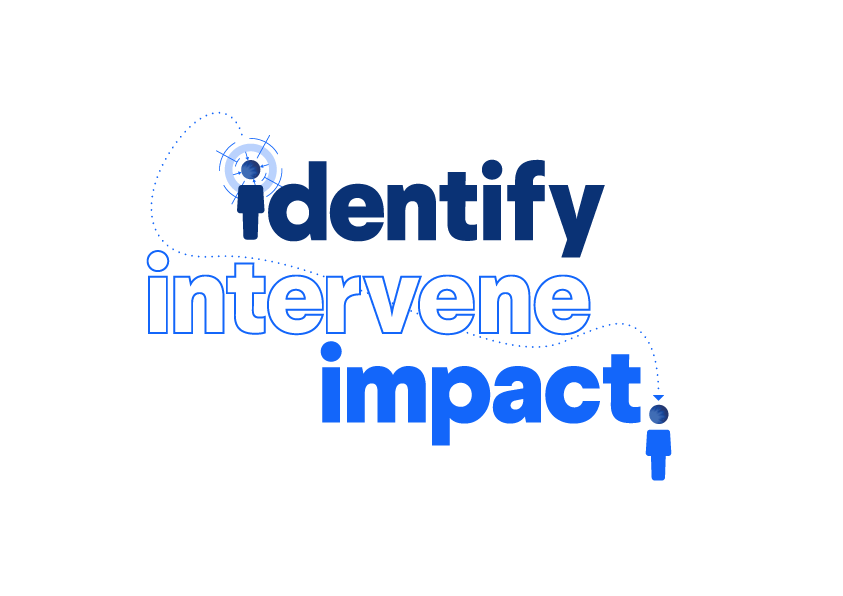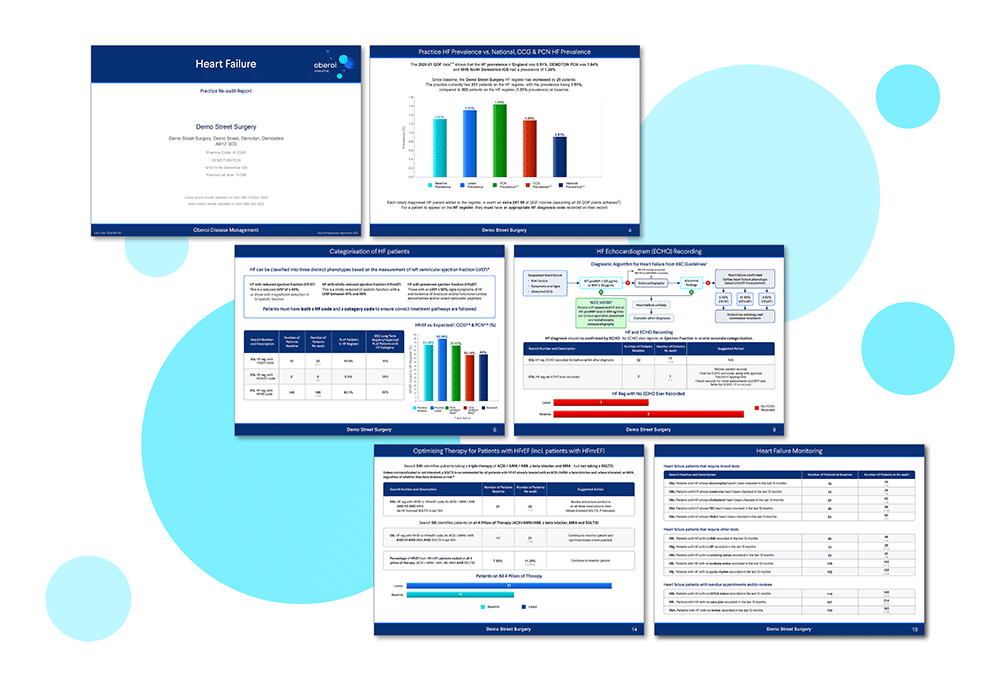

Intelligent Population Health Reporting
through Oberoi Disease Management





Heart Failure
Heart failure (HF) affects nearly a million people across the UK and is second only to stroke in cost for the NHS.
It is a life-limiting condition that too often causes emergency hospital admissions, poor quality of life and ultimately early death.
While there is currently no cure for heart failure, there are several proven treatments that, combined with lifestyle changes and holistic care and support, can allow many people with heart failure to live well for longer.
The Oberoi Disease Management Digital Audit Platform for HF has been developed to support primary care to deliver the 2021 ESC & 2018 NICE NG106 guidelines and latest clinical evidence for the treatment of chronic heart failure.

Practice Baseline Report Snapshot
The Service Supports Healthcare Organisations (HCOs) to:
Validate the Heart Failure Register
Through identification of patients with a code for heart failure, in absence of a sub-category code or patients with sub category codes/medication relating to Heart Failure but no Heart Failure code.
Optimise
Medication
For patients with heart failure with reduced ejection fraction (HFrEF), heart failure with preserved ejection fraction (HFpEF) and heart failure with mildly reduced ejection fraction (HFmrEF).
Continually Optimise & Manage
Patients with heart failure, through quarterly reporting (for up to 12 months) via the digital audit platform.
Dashboards
The Heart Failure dashboards provide a comprehensive overview of key metrics and insights to drive informed decision-making.
Our dashboards align seamlessly with the NHS organisational structure and are available at practice, PCN and ICB level, enabling benchmarking, easy comparison and tracking of key performance indicators.
With this alignment, our dashboard empowers PCNs and ICS to optimise care coordination, drive efficiency, and deliver patient-centered care. Providers can identify variations, share best practices, and drive resource allocation.


